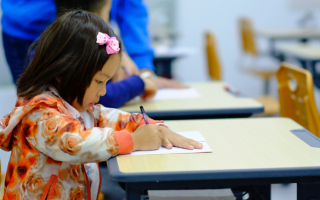Recent findings show that harsh parenting practices may hinder a child’s education. In a recent study published in the journal Pediatrics, researchers found that when parents expressed more anger toward their children, they also reported less appropriate discipline, and more punitive discipline, and were significantly less likely to follow the rules. And the negative consequences for children were significant. Children in more authoritarian families were more likely to be held back or placed in special education due to “behavioral problems” (including an almost 30 percent higher likelihood of being suspended) than their more permissive peers.
Bullying has unfortunately been a growing problem for over a decade, and the list of victims is long and growing. Unfortunately, bullying is not just about the victim, it affects the person doing the bullying and their family too. The harsh parenting style of many may do more harm than good in the long run, both for kids and for the parents and guardians of bullies.
Harsh Parenting Has a Negative Impact on A Child’s Ability to Learn
Personal Factors
Many people believe that harsh parenting is better for children. According to them, it can instill a sense of toughness and discipline in children, making them better prepared for the responsibilities of adulthood. But does harsh parenting improve children’s education?
Academic Factors
Parents are the primary teachers of their children, and their role is critical. While research shows that schools help children make gains in reading, math, and science, parents play a key role in leveraging those gains. But recent studies are raising concerns that harsh parenting practices, such as spanking, yelling, or shaming may hinder academic performance. Instead, parents should trust the educational institutions that they are enrolling their children in and take up their concerns with the teachers. They should conduct thorough research to identify preschool programs in Nottingham, MD (if that’s where they reside) that align with their values and educational philosophies. Choosing the right early childhood education program can lay a strong foundation for a child’s academic success and personal development.
Legal Factors
Harsh parenting is the cause of many problems in society today. It is a fact that children follow their parents in a lot of aspects, including their moral and social behavior. Because of this, parents play a very important role in shaping their child’s future. Many single parents, especially mothers, do not pay attention to their child’s education, and they problematize that children are learning faster and easier than their parents. However, couples that get divorced can also have a huge impact on their children’s health and well-being. As a parent, if you’ve ever had the Divorce Process Explained to you, then you would realize that the proceedings and fights over custody can make children feel like they’re being used as a trophy rather than being treated as a person.
This battle for custody becomes especially brutal on the little ones if one or both of the parents are neglectful and harsh towards their children. Such factors, after all, are taken into consideration during divorce proceedings, especially when discussing factors such as parental rights in Illinois and other states as well. From a kid’s point of view, custody battles are always awful. They can hamper a child’s education as their focus shifts from school to personal matters at home.
Physical Factors
Kids can have various physical conditions and limitations either from birth or they might develop in a few years due to the lack of proper growth and mental and cognitive development. In such cases, children can encounter challenges with basic motor skills like walking and holding objects. Some may even have reading and speaking disabilities, which can be a symptom of autism, dyslexia, or other neurological disorders.
These issues can make children nervous and awkward in social situations and affect their confidence. And if parents are also harsh to their child who is undergoing any physical condition, it can have a severe effect on them mentally and physically. Parenting methods need to be flexible based on how children perceive a situation and react to it. Moreover, in most cases, logical explanations and subtle restrictions could help kids learn better than harsh parenting tactics.
If your kid is going through physical limitations such as lack of speaking skills, broken words, or reading disorder, it could be beneficial to see a therapist instead of forcing the child to improve by themselves. You can also check out organizations like CA SRF or similar others to provide your child with speech-language, literacy, and education programs, which could help to improve communication and confidence in kids. Such support programs mostly run on donations and tend to have a team of professionals to assist kids to enhance their skills, promote growth and development, as well as do well in education.
Psychological Factors
It’s no surprise that it is impossible to make a child share, to have an only child who is always first in everything, or to have children who share and get along with each other. It is surprising to many people that such a principle can be taught to a child, and that a child can change his/her behavior just by being told what to do. This principle is very far from the truth. The harsh parenting principle actually works the opposite way.
When a child is labeled as “difficult” or “out of place,” parents often react in ways that may not necessarily be in the child’s best interests. When a child is labeled in this manner, it can create a negative ripple effect that permanently affects their education.
The argument is that parents only want the best for their children and worry that harsher parenting styles, such as corporal punishment, are helping their kids. However, studies suggest that corporal punishment has a negative impact on the child’s growth, mental health, and academic achievement. In effect, the study shows that if parents want to avoid suffering in the future, they should restrict corporal punishment.
Harsh parenting can cause kids to feel inadequate, which leads to further misbehaviors. Kids need positive feedback when it is done right. Children who feel loved and supported will be less likely to act out. When parents use discipline as a bargaining chip, kids take notice. Children rewarded more with attention and affection than discipline are less likely to act out in the future.




